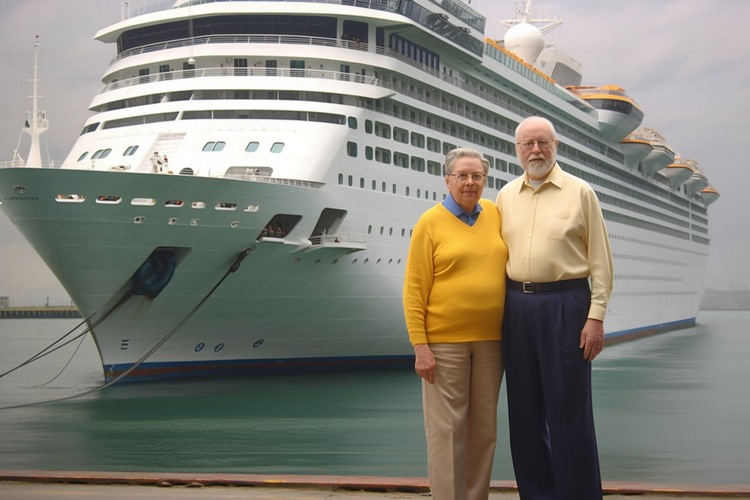Cruise Ship Jobs: High Demand Opportunities and How to Start Your Career at Sea
Embarking on a career at sea can be an exciting and rewarding experience. Cruise ship jobs are in high demand, offering unique opportunities to work while traveling the world. This article explores the ins and outs of cruise ship employment, from the types of jobs available to the potential earnings and how to secure a position in this dynamic industry.

What types of cruise ship jobs are in high demand?
The cruise industry offers a wide range of career opportunities across various departments. Some of the most in-demand positions include:
-
Hospitality roles: Waitstaff, bartenders, housekeeping, and guest services personnel are always needed to ensure passenger comfort and satisfaction.
-
Entertainment: Cruise lines seek talented performers, musicians, DJs, and activity coordinators to keep guests entertained throughout their voyage.
-
Technical crew: Engineers, electricians, and maintenance staff are crucial for keeping the ship operational and safe.
-
Medical personnel: Doctors and nurses are essential for providing onboard healthcare services.
-
Deck and bridge crew: Navigation officers, deckhands, and security personnel play vital roles in ship operations and passenger safety.
With the cruise industry’s continued growth, these positions remain in high demand, offering numerous opportunities for those seeking a career at sea.
How can I start working on a cruise ship?
To begin your career in the cruise industry, follow these steps:
-
Research cruise lines and positions that interest you.
-
Ensure you meet the basic requirements, which typically include being at least 21 years old, having a valid passport, and speaking fluent English.
-
Gain relevant experience in your chosen field, such as hospitality, entertainment, or technical skills.
-
Prepare a tailored resume and cover letter highlighting your skills and experience.
-
Apply directly through cruise line websites or reputable recruitment agencies specializing in maritime employment.
-
Be prepared for a thorough application process, including interviews, background checks, and medical examinations.
-
Obtain necessary certifications, such as STCW (Standards of Training, Certification, and Watchkeeping) for seafarers, which is required for many onboard positions.
By following these steps and demonstrating your enthusiasm for the industry, you can increase your chances of landing a cruise ship job and embarking on an exciting new career.
What are the benefits of working on a cruise ship while traveling?
Working on a cruise ship offers unique advantages that combine career growth with travel opportunities:
-
Explore diverse destinations: Visit multiple countries and cultures during your contract, often with shore leave to explore ports of call.
-
Save money: With accommodation and meals provided, many crew members can save a significant portion of their earnings.
-
Develop a global network: Work alongside colleagues from various nationalities, fostering lasting friendships and professional connections.
-
Gain valuable experience: Enhance your skills in a fast-paced, multicultural environment, which can be beneficial for future career prospects.
-
Enjoy onboard perks: Access to ship amenities during off-hours, discounted cruise packages for friends and family, and other employee benefits.
-
Experience personal growth: Living and working in close quarters with people from diverse backgrounds can foster adaptability, cultural sensitivity, and interpersonal skills.
These benefits make cruise ship jobs an attractive option for those seeking adventure and professional development in a unique setting.
How much do cruise ship jobs typically earn?
Earnings for cruise ship jobs can vary widely depending on the position, experience level, and cruise line. Here’s a general overview of potential earnings:
| Position | Entry-Level Salary (Monthly) | Experienced Salary (Monthly) |
|---|---|---|
| Waiter/Waitress | $1,800 - $2,500 | $2,500 - $3,500 |
| Bartender | $2,000 - $3,000 | $3,000 - $4,500 |
| Housekeeping | $1,500 - $2,200 | $2,200 - $3,000 |
| Entertainment Staff | $2,000 - $3,500 | $3,500 - $5,000+ |
| Cruise Director | $4,500 - $6,000 | $6,000 - $8,500+ |
| Chef | $3,000 - $4,500 | $4,500 - $7,000+ |
| Engineer | $4,000 - $6,000 | $6,000 - $8,500+ |
Prices, rates, or cost estimates mentioned in this article are based on the latest available information but may change over time. Independent research is advised before making financial decisions.
It’s important to note that these figures are estimates and can vary based on factors such as the cruise line, contract length, and individual performance. Additionally, many positions earn supplemental income through tips or bonuses, which can significantly increase overall earnings.
What are the challenges of working on a cruise ship?
While working on a cruise ship can be rewarding, it’s essential to consider the potential challenges:
-
Long working hours: Crew members often work 7 days a week, with shifts that can last 10-12 hours or more.
-
Limited personal space: Cabin accommodations are typically small and shared with other crew members.
-
Time away from home: Contracts can last 4-8 months, meaning extended periods away from family and friends.
-
Strict rules and regulations: Cruise lines have stringent policies regarding behavior, dress codes, and interactions with passengers.
-
Potential for seasickness: Those prone to motion sickness may need time to adjust to life at sea.
-
Limited internet access: Communication with loved ones may be restricted due to limited or expensive onboard internet services.
Understanding these challenges can help potential crew members prepare mentally and emotionally for life aboard a cruise ship.
How can I make the most of my cruise ship career?
To maximize your experience and career potential in the cruise industry:
-
Be adaptable and maintain a positive attitude, as flexibility is crucial in the ever-changing shipboard environment.
-
Take advantage of training opportunities to expand your skillset and increase your chances of promotion.
-
Network with colleagues and superiors to build relationships that can lead to future opportunities.
-
Learn additional languages to enhance your communication skills and marketability.
-
Seek feedback and continuously improve your performance to stand out among your peers.
-
Consider cross-training in different departments to broaden your experience and make yourself more valuable to the cruise line.
-
Save money wisely to build financial security and potentially invest in further education or career development.
By approaching your cruise ship career with dedication and a growth mindset, you can turn a short-term job into a fulfilling long-term career path in the maritime industry.
Working on a cruise ship offers a unique blend of travel, professional growth, and financial opportunity. While it comes with its own set of challenges, for many, the rewards far outweigh the difficulties. Whether you’re seeking adventure, career advancement, or simply a change of pace, a job in the cruise industry could be your ticket to an exciting new chapter in your professional life.




